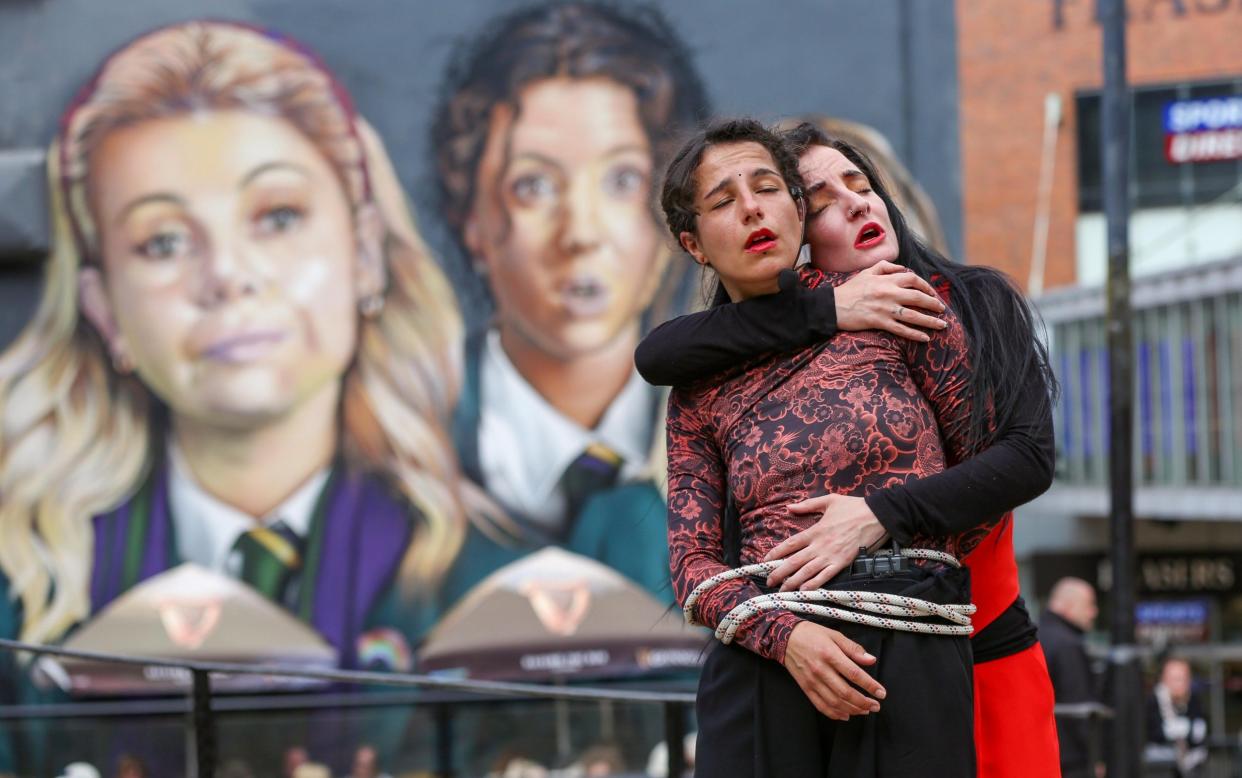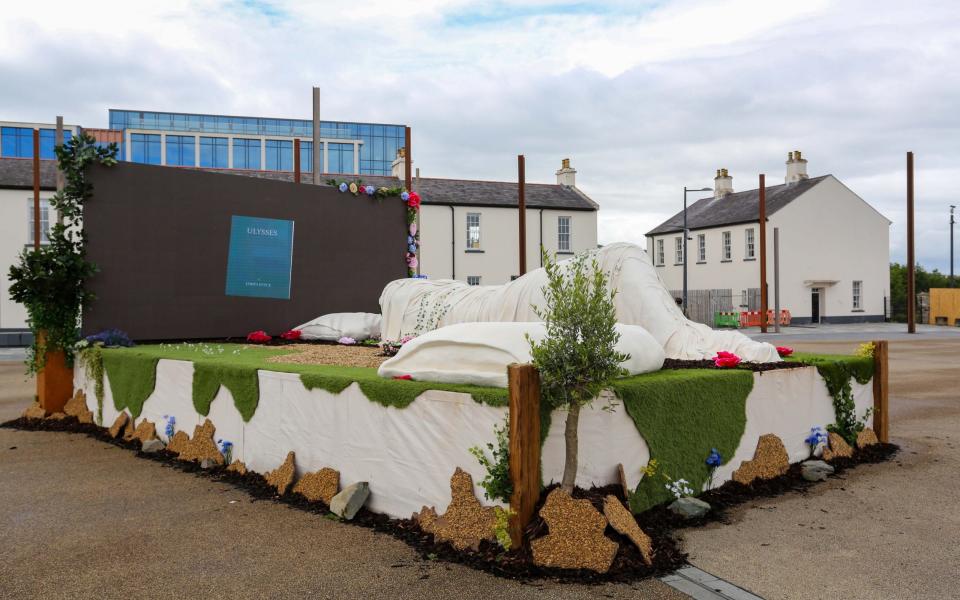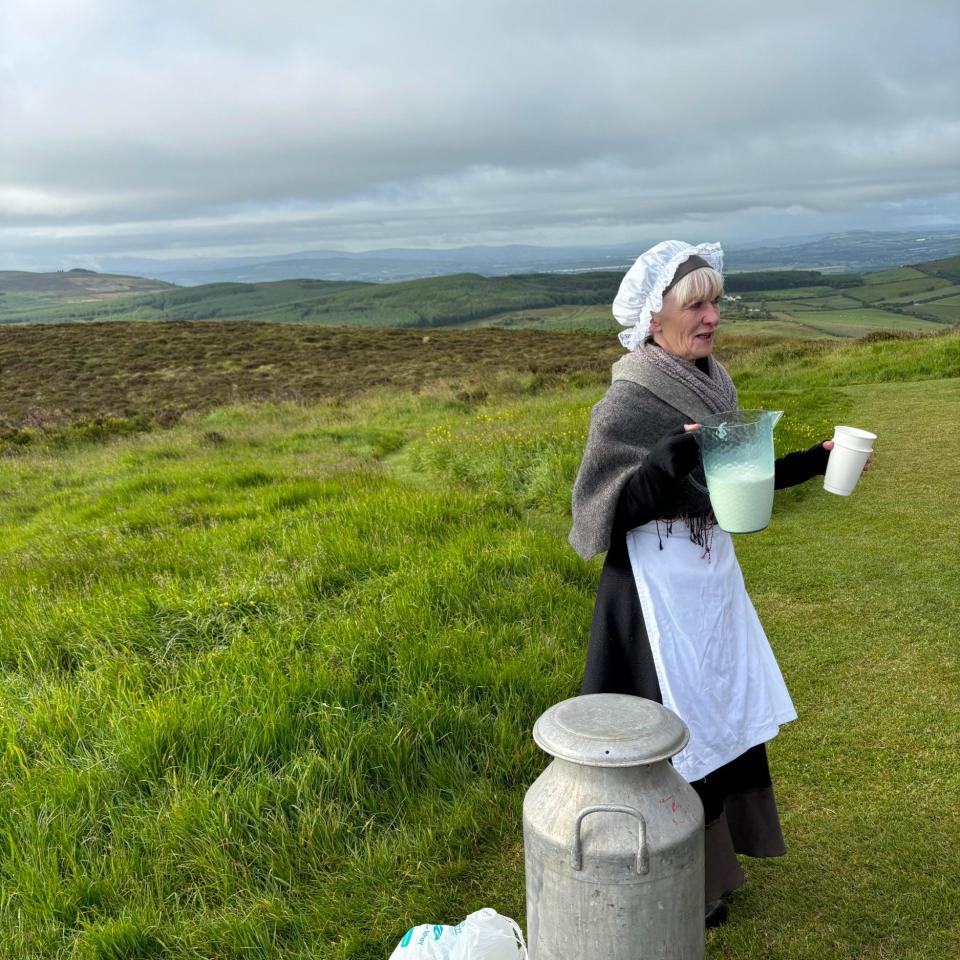Molly Bloomsday, Yes Festival: a celebration of Joyce’s Ulysses heroine as teeming as the book

“Yes” is the word of acquiescence, affirmation and ecstasy that Molly Bloom repeatedly uses in the final chapter of Ulysses, as she gives us a breathless, scandalising piece of her mind across eight mighty “stream of consciousness” sentences.
So it made sense for a hugely ambitious all-women artists’ festival, inspired by James Joyce’s heroine, simply to be called Yes. The four-day culmination of an even more madly ambitious two-year Europe-wide “Odyssey” project, marking the centenary of the modernist masterpiece’s publication, it climaxed on Sunday – (“Bloomsday”, the date on which the novel’s action occurs).
Retitled “Molly Bloomsday”, the occasion generated 18 different happenings corresponding, in an often oblique way, to the chapters of the book. Further breaking with convention: this happened not in Dublin’s fair city, where Ulysses is set, but north of the border, in Derry.
Still, according to the project’s artistic directors Sean Doran and Liam Browne, there’s a literary rationale: Molly was born into a military family in Gibraltar, and Joyce wrote the episode around the time of the Government of Ireland Act (1920) which divided the country in two.
Early birds were bussed to an ancient circular stone hillfort – the Grianan of Aileach – there to be greeted by lush panoramic views, fresh milk from an urn and dulcet singing by a trio called The Henry Girls. The latter included Love’s Old Sweet Song [Just a Song at Twilight].

A giant public installation of Molly, sheet-swathed and a-slumber, near the city’s Peace Bridge (a pedestrian bridge over Troubled waters past) lent the day a quality of midsummer dreaming. It was impossible to catch everything (there were talks, films, drinking sessions too) and only dedicated buffs would have caught every reference.
You were invited to think about the Blooms’ deceased infant son during a tour of the city cemetery (“Hades”); but I wouldn’t have known without a steer that the tapping on a music stand during the frankly dementing, John Cage-inspired Sirens section (200 musicians and singers, pitching rival sounds into an echoey hall) was an allusion to the “blind stripling” in that chapter.

In general, it was a different kind of connection and tingling Joycean alertness the hoolee was after: eight marching bands from different community backgrounds snaking along the old city walls (Wandering Rocks), banishing division, summed the transcendent festive spirit up. So did the main closing act: Dublin star Imelda May, talking, singing and giving Fiona Shaw, Harriet Walter and others a run for their money (they’ve been filmed richly intoning Molly’s monologue, now online). “Drives you mad, it’s so beautiful,” May said after finishing her own impassioned reading. Yes, yes and thrice yes, to that.
Info: yesderry.com; Ulysseseurope.eu

 Yahoo News
Yahoo News 
